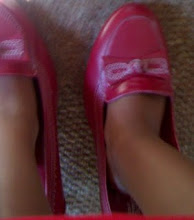 As the sun begins to announce yet the end of another day, the women gather themselves.
As the sun begins to announce yet the end of another day, the women gather themselves.“Mai Preshi we are leaving, hurry or you will have to run after us”, Mai Taku shouts to announce the departure of the convoy. The path from the compound to the river is at once alive with activity, shabbily dressed, bare-footed women walking in a single file, each labouring under the load of a baby strapped to her back, and balancing a bucket of dirty clothes, utensils, rags and whatever else might benefit from fresh waters. The older children run alongside their mothers, and so begin the twenty minute pilgrimage to Matonhodze River.
“Mai Vicky, I hear Baba Vicky arrived last night. Is he well?” Mai Rudo asks
“Ah! he is well. We didn’t sleep last night.”
This solicits a fit of laughter from the other ladies.
“Be careful now”, Mai Chenge quips in. “You will be pregnant again soon”. More laughter.
“Not possible”, Mai Vicky retorts “I am now on the pill.” More laughter.
“Yes, Baba Vicky has important news from the city. He says both Mugabe and Tsvangirai now rule the country. Tsvangirai is the Vice President,” Mai Vicky continues.
“Ah! That’s not possible, did the old man really agree to that? Does that mean it is no-longer dangerous to openly support MDC?” Mai Preshi asks.
“Yes, Baba Vicky says so. He says things will change, sugar, cooking oil, flour will be available again. There is going to be change.” Mai Vicky explains.
The exchange goes on for the rest of the trip to the river.
The river is welcoming; they undress and immerse themselves in its belly. Its fresh flowing waters offer relief to their sun-baked backs. The atmosphere is alive with roaring, loud and piercing laughter, as they make observations on whose behind is well fed and whose would benefit from the food supplements from World Food Programme. In this laughter they get the utensils and clothes washed; and children bathed. They pass on information on who is selling scarce basic commodities, and engage in the village gossip.
“Have you seen Ndana, mbuya Murimi’s eldest daughter?” Mai Josiah offers. “Oh! She can’t walk, she refuses to eat. The disease is advanced now. The hospital has sent her home. I don’t think she will make it to next month, even next week.”
“I hear her husband does not even come to see her anymore. He is already living with a young girl in Gweru.” Mai Kuda adds
“Ah, these men of ours, they are so shameless, they will bring another woman to your bed before they even bury you.” More laughter.
So it is, in my village, when the sun sets on old patriarchs, the women allow Matonhodze to carry the day’s dirt. They laugh at their men, at poverty, even at death – and they reminisce on the gone days, when they could afford tennis shoes. Today though, they allow themselves to hope, basing it on the important news from the city; and only time will tell, if this is indeed a new beginning or just the beginning of the end.

No comments:
Post a Comment